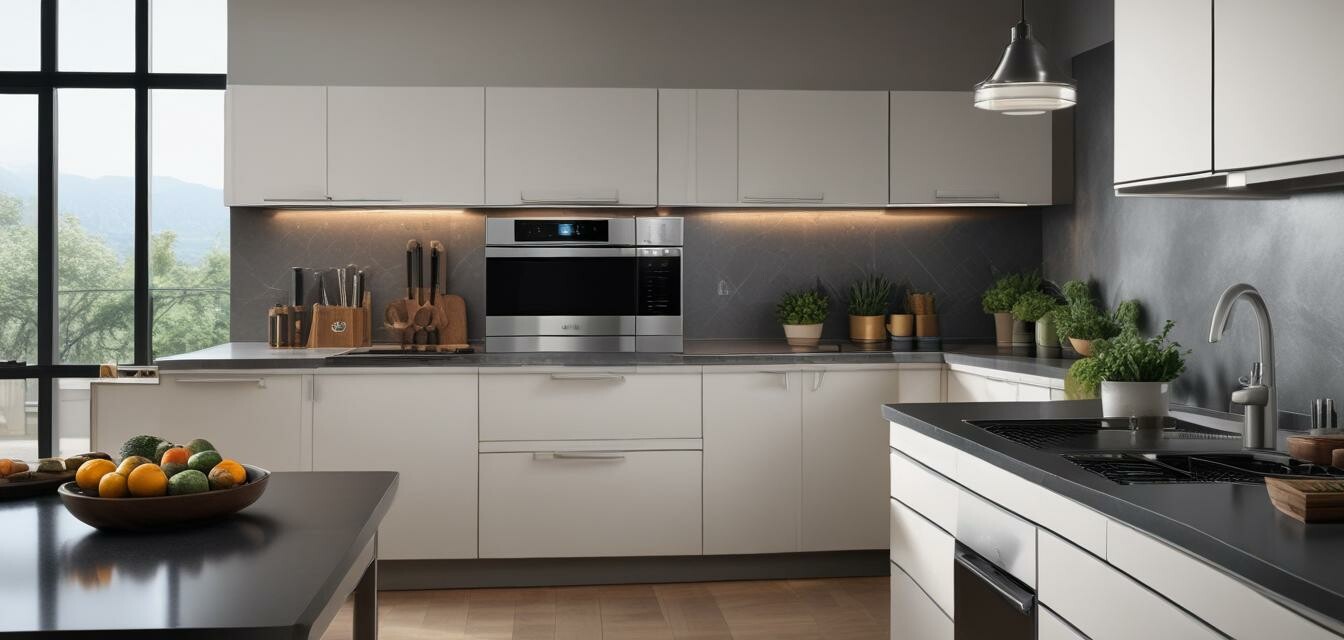
Smart Kitchen Networks: The Future of Connected Cooking
Key Takeaways
- Smart kitchen networks are revolutionizing the way we cook by providing interconnected devices that simplify cooking tasks.
- These networks enhance user convenience through automation and remote monitoring capabilities.
- Integration with smart home systems allows for a seamless cooking experience.
- Sustainable technology trends are also shaping smart kitchen innovations.
- Advancements in Bluetooth-enabled and energy-efficient appliances are key components of smart kitchen networks.
In today’s fast-paced world, the kitchen is evolving rapidly, driven by innovation and technology. Smart kitchen networks are at the forefront of this evolution, integrating various appliances to create a cohesive cooking experience. In this article, we will dive into how interconnected smart kitchen devices are transforming cooking processes and enhancing user convenience.
What are smart kitchen networks?
Smart kitchen networks consist of various kitchen appliances and devices equipped with advanced technology that can communicate with each other. These networks are designed to streamline cooking processes, offer better control, and improve convenience for users. By leveraging technologies such as Wi-Fi, Bluetooth, and IoT (Internet of Things), these devices can be remotely controlled, monitored, and automated.
Benefits of smart kitchen networks
Integrating devices into a smart kitchen network can provide numerous benefits:
| Benefits | Description |
|---|---|
| Enhanced convenience | Control devices from anywhere, set timers remotely, and receive notifications. |
| Energy efficiency | Smart appliances optimize energy usage and reduce waste. |
| Time-saving | Automate repetitive tasks and streamline cooking processes. |
| Improved cooking accuracy | Sensors and algorithms ensure precise cooking metrics for better results. |
| Integration with smart home systems | Seamless interaction with other smart home devices enhances user experience. |
How smart kitchen appliances work together
Smart appliances can communicate and work together in harmony. For example, a smart oven can adjust its cooking time based on the weight of the food detected by a smart scale. Similarly, a smart refrigerator can suggest recipes based on available ingredients and send instructions to a smart cooking range.
The role of Bluetooth-enabled devices
Bluetooth-enabled devices are crucial players in smart kitchen networks. They facilitate easy connections and interactions between appliances. Some of the popular applications include:
- Remote control: Users can manage appliances from their smartphones.
- Recipe sharing: Users can send recipes to their appliances directly for automated cooking.
- Syncing cooking processes: Multiple devices can be coordinated to work together, improving efficiency.
The importance of energy-efficient appliances
Energy-efficient appliances are essential in a smart kitchen. They help to minimize electricity usage and reduce environmental impact while offering enhanced functionality. Some benefits include:
- Lower utility bills.
- Longer appliance lifespan.
- Increased value for eco-friendly consumers.
Emerging trends in smart kitchen technology
The fast-paced world of technology is continuously evolving, leading to innovative trends in smart kitchen appliances:
- Voice control: Voice-activated assistants are being integrated into cooking devices for hands-free convenience.
- Adaptive learning: Appliances that learn user preferences and customize cooking settings accordingly.
- Sustainability: Emphasis on eco-friendly materials and systems in appliance development.
Smart kitchens and the future of cooking
As smart kitchen networks become more complex, they will redefine our cooking experiences. With the ability to integrate with various systems, including energy management and home security, the future of cooking promises increased innovation and efficiency. Consumers will benefit from greater flexibility, allowing cooking to fit seamlessly into their busy lifestyles.
Conclusion
Smart kitchen networks represent the future of cooking, transforming kitchens into advanced culinary environments. As technology evolves, we can expect further integration of appliances, making cooking smarter and more enjoyable. Stay ahead of the curve by exploring Bluetooth-enabled devices and buying guides that help you navigate this evolution.
Pros
- Streamlines cooking processes and saves time.
- Improves accuracy and efficiency in cooking.
- Offers convenience through remote monitoring and control.
- Encourages sustainability with energy-efficient designs.
Cons
- Initial cost of smart appliances can be high.
- Security risks associated with IoT devices.
- Requires consistent internet connectivity for optimal performance.
Learn more about smart kitchen appliances
For more information on how to choose the right smart appliances for your needs, check out our Smart Kitchen Tips section. Stay updated with the latest trends in the industry in our News and Trends section. Embrace the future of cooking and enjoy the full benefits of a connected kitchen!